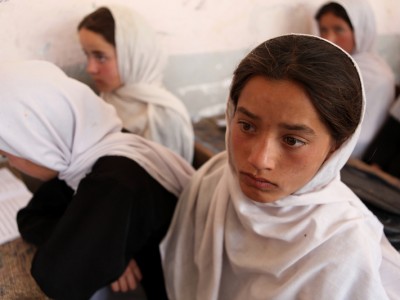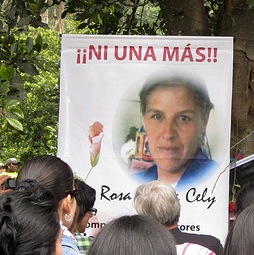Stories about Women & Gender from June, 2012
Cambodia: No Surprise During Commune Elections
Cambodia's commune elections turned out to be peaceful and only few irregularities were reported. Online tools were used for the first time to spread information about the voting system. Netizens observed that the ruling party was able to maximize state resources to gain advantage in the campaign
Pakistan: Suspected Honor Killing of Five Girls for Celebrating with Boys
Five girls are reported to have been killed in Kohistan, Pakistan, for dancing and listening to music in the presence of boys at a marriage celebration after being convicted by a jirga tribal court.
Yemen: The Sheikh, Women and the NYT
Yemeni netizens are enraged by Sheikh Hamid Al-Ahmar, a member of Al Islah’s political leadership, who allegedly made an offensive statement regarding Yemeni revolutionary women to the New York Times. On Twitter, the battle rages as the Sheikh denies he made the comments and the newspaper is yet to show proof of what it says he said.
Saudi Arabia: Moral Courage to Speak Up
Saudi blogger Eman Al Najfan shares her thoughts on Manal Al Sharif, a women's rights activist, in this post. “[I]n Saudi, there are many women and men who oppose how women are treated in Saudi, but rarely do you find someone who’s willing to come out in public and state...
Afghanistan: Girls Poisoned for Attending School
Although a ban on education for girls and women in Afghanistan was lifted after the fall of the Taliban in 2001, female students continue being targeted by fundamentalists for attending school. In a recent string of attacks in the northeastern Afghan province of Takhar, hundreds of girls were poisoned at their schools.
Kazakhstan: Children Behind Bars with their Mothers
Vox Populi presents a photo essay [ru] on the lives of children who serve time with their mothers at a women's prison in southwestern Kazakhstan.
Colombia: The Brutal Rape and Murder of Rosa Elvira Cely
Colombian netizens were moved and outraged when they found out about the brutal rape and murder of 35-year-old Rosa Elvira Cely. Hundreds of people attended a demonstration to demand justice, using hashtags like #RosaElviraCely and #NiUnaMás ("not one more").
Brazil: Facebook Censors Photos of the ‘SlutWalk’
Not long after the SlutWalk which took place in several Brazilian cities, photos in which some women appear bare-breasted in protest against male chauvinism were deleted by Facebook for “violating the declaration of rights and responsibilities.” The social network has found itself at the core of the debate about the distinction between “gratuitous” nudity, pornography and social activism.
Kyrgyzstan: Civic Initiatives Seek to Tackle Bride-Kidnapping
Although bride kidnapping is officially a crime in Kyrgyzstan, it remains a common occurrence in the country's rural areas. With the authorities reluctant to clamp down on the practice, civil society organizations and creative troupes harness the power of performance to educate the population about the harmful effects of bride kidnapping.






